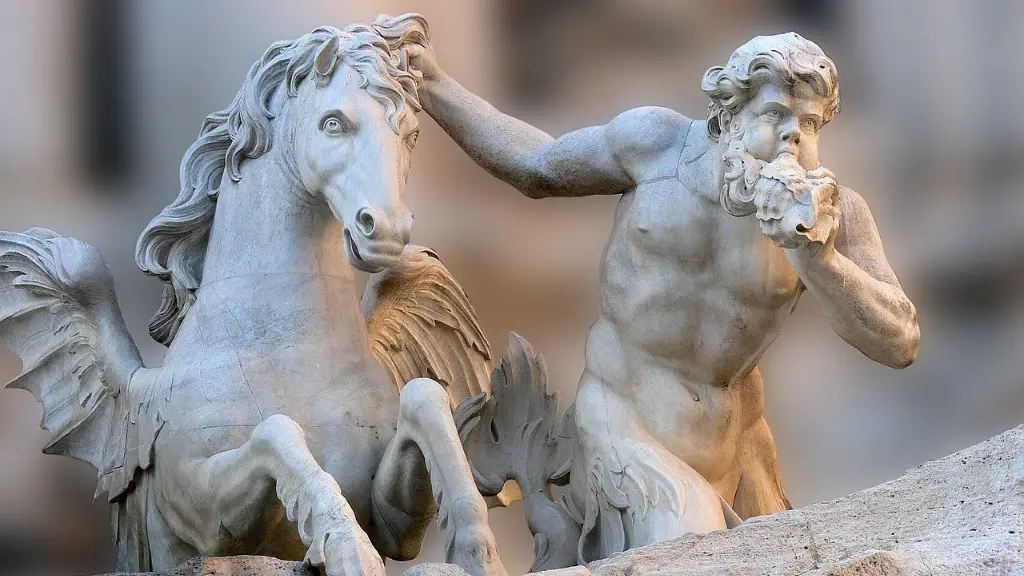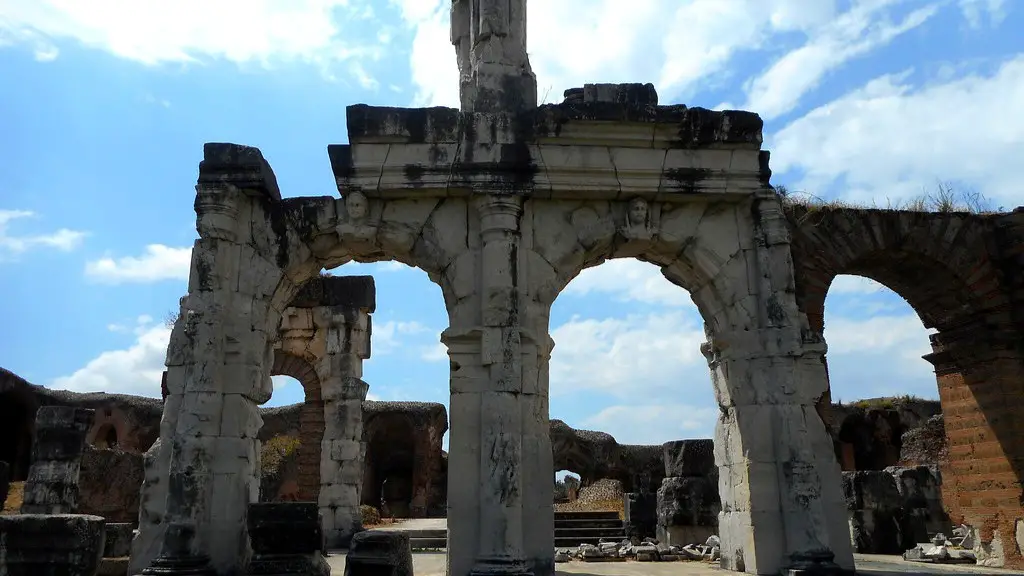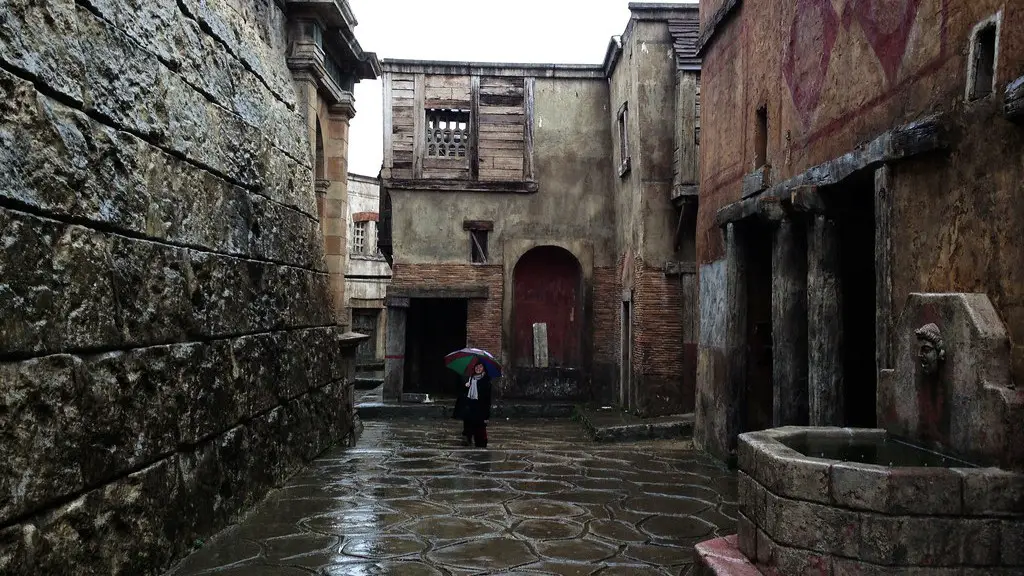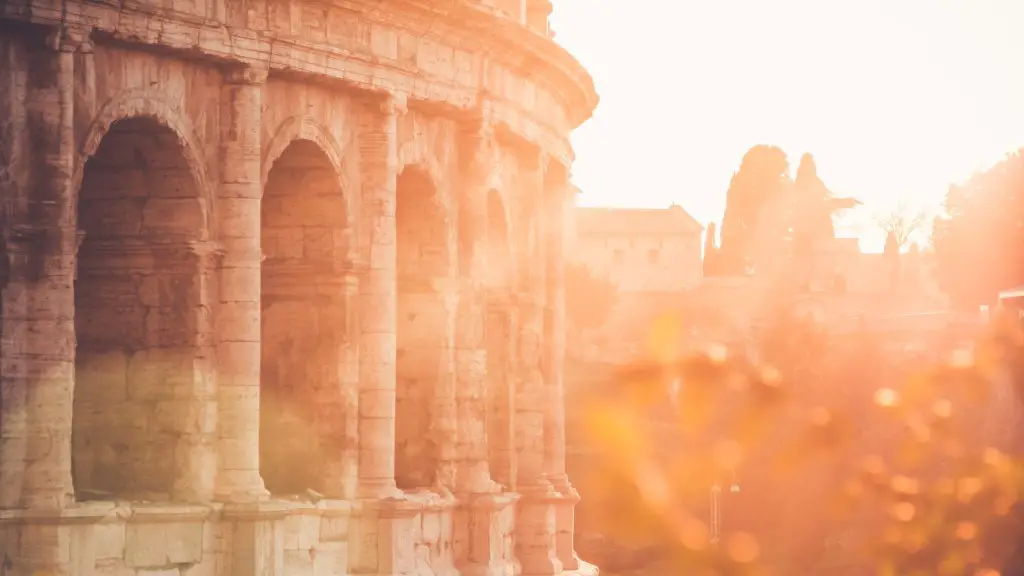The emperor was the highest authority in ancient Rome, and his job was to rule the whole of the Roman Empire. The emperor was responsible for governing all of the provinces, managing public finances, conducting military campaigns, and maintaining the empire’s laws and justice system. He was also expected to serve as a representative of Rome in all diplomatic matters and had to ensure the protection of his empire’s borders. An Emperor’s power was absolute – his word was law, and only he could make any major decisions.
The Process of Becoming an Emperor
In the beginning, becoming an Emperor was by no means a guarantee. In order to be considered, a potential candidate had to meet strict criteria, such as being a successful military leader, having good administrative skills, and coming from an influential family. Once someone was chosen to become an Emperor, they had to swear a sacred oath in front of a large crowd of people, which was known as the ‘Confirmation Ceremony’, in which they promised to fulfill all of their duties as Emperor to the best of their ability. This ceremony was often followed by a formal procession and the coronation of the new Emperor.
What Did The Emperor Do?
The Emperor was the absolute leader of the Roman Empire, and was both a political and military leader. Politically, the Emperor had absolute power in all matters of the state and was responsible for appointing government officials and ensuring laws were enforced. He also had the power to pass new laws, offer amnesty, and pardon citizens who had broken the law.
The Emperor was also responsible for leading the military forces of the Roman Empire. He was the commander-in-chief of all the armed forces, and had the power to lead military campaigns, appoint army officers, and initiate new strategies. He was also responsible for providing funding for military campaigns, and for recruiting soldiers.
Apart from these military and political roles, the Emperor also played an important role in the Roman religious hierarchy. He was expected to take part in religious ceremonies and festivals, and was said to be the bridge between the human population and the gods. The Emperor was also expected to take part in diplomatic affairs, mediating between different nations, and establishing diplomatic ties between Rome and other states.
Who Supported The Emperor?
The Emperor was not alone in his role as the leader of Rome. He was supported by an extensive network of advisors and officials, who helped him in the management of the empire. The most important of these advisors was the Praetorian Guard, an elite bodyguard of highly trained soldiers who protected the emperor and served as his closest advisers. Other officials such as the Senate and the Consuls also provided counsel to the Emperor, though the amount of power they held varied depending on the Emperor’s policies.
The Downfall of the Role
In the 3rd century AD, the role of the Emperor in Ancient Rome began to slowly diminish. This was due to a number of factors, including internal and external pressures, political turmoil, military defeats, and even financial collapse. Many of the emperors during this period lacked the political skill and military prowess to effectively lead the empire, and as a result, there was increasing public discontent with their rule. This led to a gradual weakening of the position of the emperor, until it eventually became an honorary title without any real power.
What Legacy Did The Emperor Leave?
The emperors of Ancient Rome left a lasting legacy on the world. Their successes and failures shaped the culture, politics, and economy of the Roman Empire, and their reigns had a major influence on the development of Europe and the modern world. The Roman Empire’s legal system and its language, Latin, are both still in use today, and the empire’s culture and its arenas of entertainment, such as the Colosseum, are still remembered and admired.
The Impact of the Emperor’s Role Nowadays
The role of the Emperor in Ancient Rome still continues to resonate in modern society. The concept of an absolute ruler with unfettered power still has an influence on contemporary society, both in terms of political governance and popular culture. Unsurprisingly, the idea of an emperor still features prominently in literature, films, and television, often as a villain or a figurehead of absolute power.
The Relevance of the Emperor in Modern Global Politics
Today, the role of the emperor has been reduced to a largely symbolic one in global politics. Presidential systems of government have replaced the system of rulers and their absolute power, and the imperial title has been removed from proposed constitutions. Despite this, the emperor as a figure of absolute power still has a significant presence in the world today, with many modern leaders seeing themselves as similar to the ancient emperors of Rome.
Technological Advances and The Emperor’s Role
The introduction of new technologies has greatly impacted the role of the emperor in modern society. Despite the increased level of participation of citizens in the decision-making process, the role of the emperor still remains largely unchanged. The emperor’s power to shape policy and direct the nation is still a core feature of many countries’ political systems, though the authoritarian control typically exercised by emperors in the past is not so common in contemporary societies.
Future of the Emperor’s Role
As technology continues to evolve and more countries adopt democratic systems of governance, it is likely that the role of the emperor will become increasingly obsolete in the future. It is likely that any figures of authority in the future will be limited to playing a strictly ceremonial role, with citizens enjoying the majority of the power in directing the nation’s future.
Conclusion
The role of the emperor in Ancient Rome was an important one and had a major influence on how we see authority today. Although the figurehead of absolute power no longer holds the same level of control in modern society, their legacy still has an impact on how people view authority and power. It is clear that the role of the emperor in Ancient Rome continues to have an influence on modern day politics and culture, and will continue to do so for many years to come.



